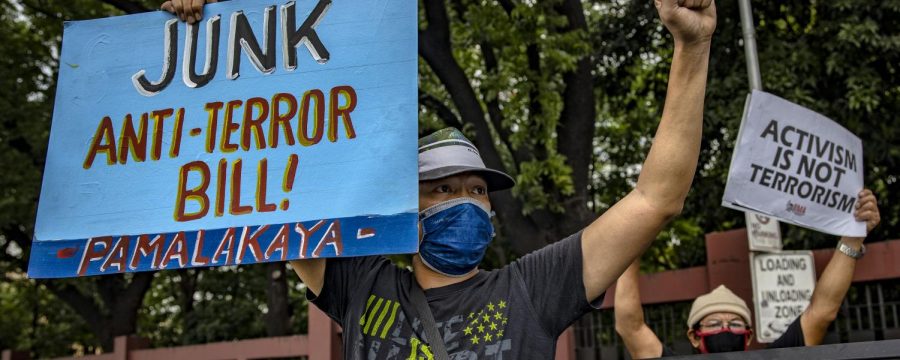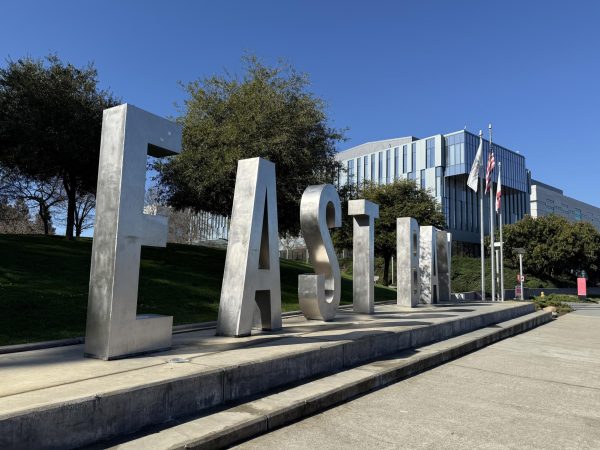May Day Celebration on Zoom: the struggle for workers’ rights in the Philippines and U.S.
In recognition of May Day, also referred to as International Workers Day, California State University, East Bay held a roundtable discussion with two journalists working in the Philippines. Marites Danguilan Vitug, one of the Philippines’ most accomplished journalists with over 30 years of experience, and Ryan Macasero, a CSUEB Alum who has worked as a journalist in the Philippines for almost a decade, discussed life and politics in the Philippines. The discussion particularly focused on the attacks against journalists and activists from the Philippine government.
President Duterte is the controversial leader in the Philippines. While there are a portion of residents in the Philippines who speak out against Duterte (and are punished for doing so), there are those who support him despite his blatant attacks against democracy. So why is he still such a popular leader?
Both journalists Danguilan Vitug and Macasero, agree that Duterte remains popular due to his charismatic jokes, brass humor, simple solutions to complicated issues and his ability to resonate with the people by addressing them directly when he speaks.
This may sound familiar to us here in the U.S. considering the fact that Donald Trump’s 2016 presidential campaign was and still is heavily compared to Duterte’s presidential campaign from earlier that year. After a phone call between the two leaders, Duterte even gained approval for his heavy anti-drug campaign from the former U.S. president.
The roundtable was filled with numerous heartbreaking stories about journalists and activists in the Philippines who have been arrested and killed by Duterte’s administration. There was heavy discussion around the ability of Duterte’s administration to attack journalists and activists, with particular focus on red-tagging/red-baiting and the Anti Terror Law that Duterte signed into legislation in July of 2020.
Red-baiting, more often referred to as red-tagging in the Philippines, is when the Philippine government accuses journalists and members of progressive groups as being aligned with and a part of the New People’s Army (NPA), the armed wing of the communist front in the Philippines. Red-baiting has its origins in the United States, particularly in the Cold War, commonly referred to as “McCarthyism,” through which accusations of being a communist result in blacklisting or criminal sentencing.
Thus, the Philippine government, learning from its colonizing state (the U.S.), has successfully implemented such tactics to arrest journalists and activists who do not politically align with the government. In most cases, these journalists and activists are falsely charged with possession of weapons, whether or not they were actually in possession of a weapon. An aspect of the Anti Terror Law ensures a non-bailable charge for possession of weapons.
As Duterte is legally justified to arrest journalists and activists with no bail, he is able to silence and nullify anyone from speaking out against his government. The emergence of “government-sponsored trolls” who are hired by the Phillippine government to divert social media and “distract people from important issues,” Macasero said.
For more information about this topic, Danguilan Vitug and Macasero recommend watching A Thousand Cuts, a 2020 documentary film about Duterte’s war on the press, attacks on freedom of speech, and democracy in the Philippines.
Overall, the situation in the Philippines and the attacks against journalists and activists is brutal and hits closer to home than a lot of people in the U.S. might be willing to admit.
The May Day roundtable, which was a joint project by CSUEB’s Departments of Political Science, Communication, Nursing, and Ethnic Studies, was an extremely informative and eye-opening discussion that showed the importance of speaking out against oppression as scary as it can be.
Read more about the topic here: The historical importance of May Day: the international struggle for workers rights







